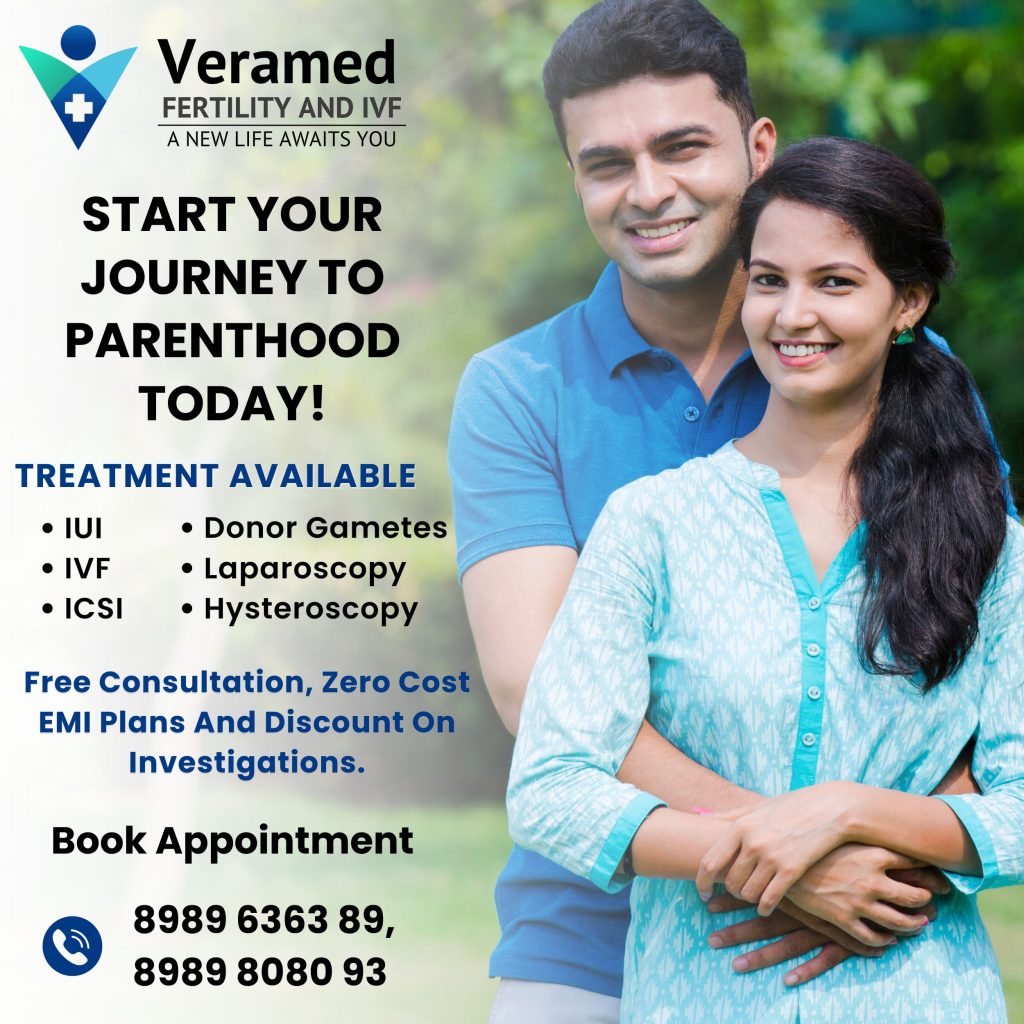Conceiving a child is a deeply personal and often eagerly anticipated journey for many couples. However, when the dream of starting a family remains elusive, it can be a source of immense frustration and heartbreak. Infertility affects millions of couples worldwide, and while it may seem like an insurmountable challenge, understanding the reasons behind it is the first step towards finding effective treatments. In this blog, we will explore various factors that contribute to infertility and discuss treatment options that offer hope and support for couples on this challenging path.
I. Biological Factors:
Ovulatory Disorders:
One of the most common reasons for infertility in women is irregular or absent ovulation. Conditions such as polycystic ovary syndrome (PCOS) can disrupt the regular release of eggs, hindering conception. Treatment options often include lifestyle modifications, medications to induce ovulation, or assisted reproductive technologies (ART) like in vitro fertilization (IVF).
Sperm Disorders:

Male factor infertility can result from issues such as low sperm count, poor sperm motility, or abnormal sperm morphology. Lifestyle changes, medications, and reproductive technologies like intrauterine insemination (IUI) or IVF may be recommended to address these challenges.
Tubal Factor:
Blockages or damage to the fallopian tubes can prevent the egg from reaching the uterus and the sperm from reaching the egg. Surgical interventions to repair or unblock the tubes, or ART procedures like IVF, are common approaches to overcoming tubal factor infertility.
II. Age-Related Factors:
Diminished Ovarian Reserve:
As women age, the quantity and quality of their eggs decrease, impacting fertility. This condition, known as diminished ovarian reserve, can be addressed through fertility preservation methods, such as egg freezing, or through assisted reproductive technologies.
Advanced Paternal Age:
While much attention is often given to maternal age, paternal age can also play a role in infertility. Advanced paternal age has been linked to decreased sperm quality and an increased risk of certain genetic conditions in offspring. However, lifestyle changes and healthy habits can positively influence sperm quality.
III. Lifestyle Factors:
Nutrition and Weight:
Both underweight and overweight conditions can disrupt hormonal balance, affecting fertility. Achieving a healthy weight through a balanced diet and regular exercise can significantly improve fertility outcomes for both men and women.
Smoking and Alcohol:

Tobacco and excessive alcohol consumption have been associated with decreased fertility in both men and women. Quitting smoking and moderating alcohol intake are essential lifestyle changes that can enhance fertility prospects.
Stress:
High levels of stress can negatively impact reproductive hormones and disrupt the menstrual cycle. Incorporating stress-reducing activities such as yoga, meditation, or counseling into daily life can be beneficial for couples trying to conceive.
IV. Medical Conditions:
Endometriosis:
Endometriosis, a condition where tissue similar to the lining of the uterus grows outside the uterus, can lead to infertility. Treatment options include surgery to remove endometrial tissue, hormonal therapies, and assisted reproductive technologies.
Polycystic Ovary Syndrome (PCOS):
PCOS is a common hormonal disorder among women of reproductive age, often leading to irregular ovulation and infertility. Lifestyle changes, medications to regulate hormones, and fertility treatments like IVF can help manage PCOS-related infertility.
Thyroid Disorders:
Imbalances in thyroid hormones can impact fertility. Proper management of thyroid disorders through medication and regular monitoring is crucial for optimizing fertility.
V. Unexplained Infertility:
Sometimes, even after thorough examinations, the root cause of infertility remains unknown. In such cases, treatments may focus on addressing potential contributing factors, such as optimizing timing for intercourse, lifestyle changes, and exploring various fertility treatments.
Lifestyle Modifications:
Adopting a healthy lifestyle by maintaining a balanced diet, regular exercise, and avoiding harmful substances like tobacco and excessive alcohol can significantly improve fertility for both partners.
Medications:
Fertility medications, such as Clomiphene citrate or gonadotropins, may be prescribed to stimulate ovulation in women or improve sperm production in men. these medications are combined with other fertility interventions for a comprehensive approach.
Surgical Interventions:
Surgical procedures, such as laparoscopy to treat endometriosis or repair blocked fallopian tubes, can address specific anatomical issues hindering conception.
Intrauterine Insemination (IUI):
IUI involves placing prepared sperm directly into the uterus during the woman’s fertile window, increasing the chances of fertilization.
In Vitro Fertilization (IVF):
IVF is a widely used assisted reproductive technology where eggs and sperm are combined outside the body, and the resulting embryos are transferred to the uterus. IVF is a comprehensive solution for various fertility challenges.
Egg or Sperm Donation:
In cases where one partner has a limited quantity or quality of eggs or sperm, using donor eggs or sperm may be considered. This option allows couples to achieve pregnancy and experience parenthood.
Surrogacy:
Surrogacy involves using a gestational carrier to carry the pregnancy when the intended mother is unable to do so. This option is suitable for couples facing uterine issues or medical conditions preventing pregnancy.
If you find yourself on the path of infertility, Veramed Fertility and IVF provides a seamless solution to initiate your journey towards conception. The center offers the expertise of Dr. Deepika Jagga, a highly regarded infertility specialist with a wealth of experience in the field. Dr. Jagga’s commitment to personalized and compassionate care ensures that patients receive the attention and support they need throughout their fertility treatment.
Conclusion:
Infertility is a complex and multifaceted challenge that affects individuals and couples on a deeply emotional level. However, advancements in medical science and fertility treatments offer hope and opportunities for those struggling to conceive. By understanding the various factors contributing to infertility and exploring the diverse treatment options available, couples can embark on a journey that may lead them to the realization of their dream of starting a family. Seeking support from healthcare professionals, fertility specialists, and support groups can provide guidance and emotional assistance throughout this challenging but hopeful process. Remember, infertility is a shared journey, and with the right knowledge and support, many couples can overcome the hurdles and achieve the joy of parenthood.
Book your appointment now for the best infertility treatment in Delhi.

